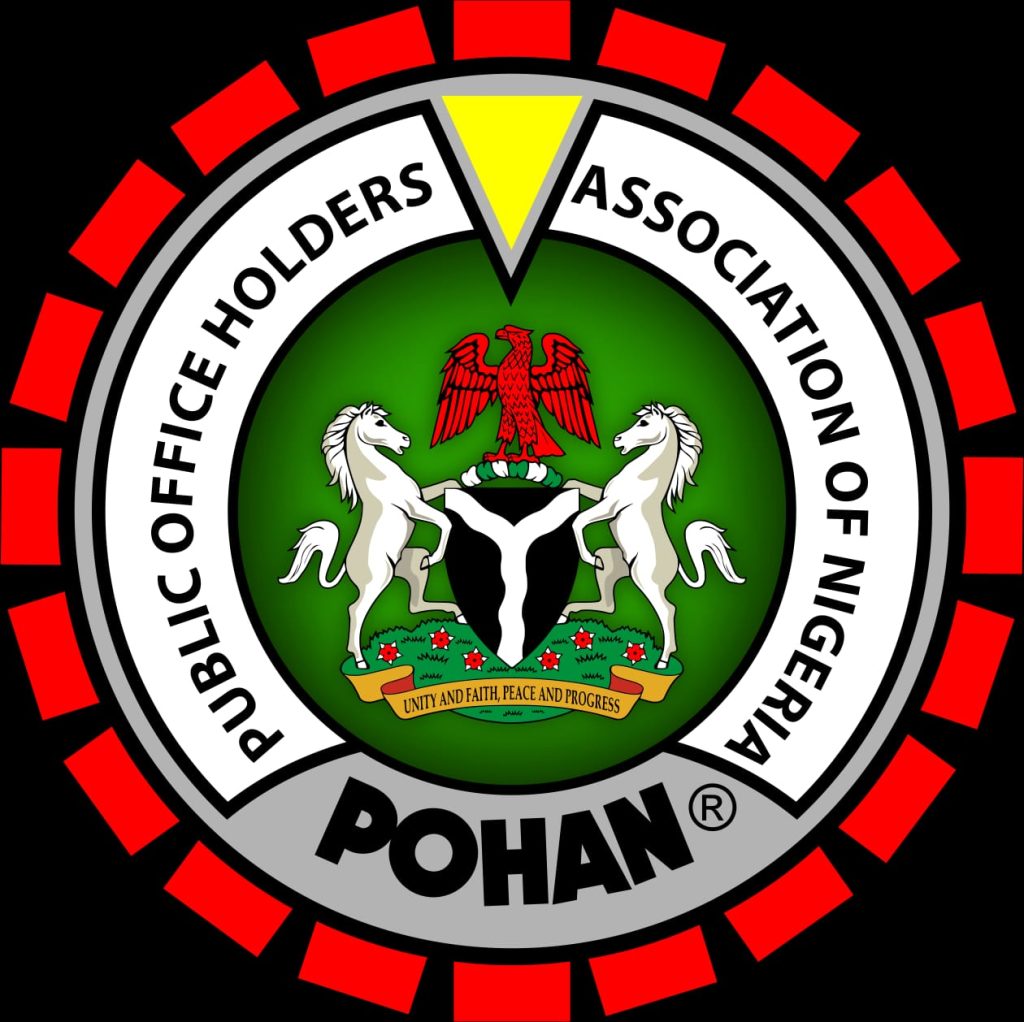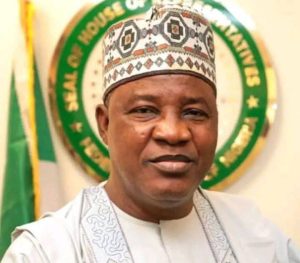POHAN and the Rebirth of Nigeria’s Public Service

By: Prof. Ahmed Mohammad
In a country where public service has too often been equated with privilege rather than sacrifice, the emergence of the Public Office Holders Association of Nigeria (POHAN) may well be one of the most significant institutional developments in Nigeria’s governance space in recent years.
Founded in February 2020 by Bashorun MD Eseyin, POHAN was conceived as the umbrella body for all public office holders in Nigeria, a platform to reawaken the conscience of those entrusted with the affairs of the state, and to restore honour, professionalism, and patriotic zeal to the Nigerian public service.
From its very inception, POHAN has made its purpose clear: to champion a public service that works for every Nigerian. It has sought to rekindle the old spirit of dedication and ethical leadership that once characterized Nigeria’s bureaucracy before political patronage and corruption eroded its soul. The organization’s founding philosophy rests on the belief that good governance begins with good people, and that reform must start from within the system itself.
A Vision Rooted in Service
Bashorun Eseyin, who serves as POHAN’s founding President, is no stranger to the ideals of integrity and leadership. His decision to establish an association that brings together office holders from all arms and tiers of government was both timely and visionary. At a period when many Nigerians viewed public office as an avenue for personal gain, Eseyin sought to remind his peers that holding office is a privilege, one that comes with a sacred duty to serve the nation selflessly.
POHAN’s objectives, as listed on its official platforms, are noble and comprehensive. The association seeks to advance the education, training, and retraining of public officers for effective and professional service delivery. It strives to promote high ethical standards in the discharge of duties, and to encourage international cooperation with like-minded institutions that share in the vision of transparent and accountable governance. It also advocates for just and equitable working conditions for public servants, and consistently pushes for policies that improve the quality of governance across all sectors.
Partnerships that Build Capacity
Perhaps one of POHAN’s most significant achievements in its relatively short existence is its ability to forge strong and meaningful partnerships. The association has collaborated with the Office of the Secretary to the Government of the Federation (OSGF) to organize capacity-building programs for public servants, emphasizing patriotism, discipline, and efficiency as pillars of service.
It has also partnered with the Association of Local Governments of Nigeria (ALGON) to take its advocacy to the grassroots, recognizing that true reform must begin from the lowest tier of government, where public service meets the ordinary citizen most directly. These partnerships signal a clear shift in approach: rather than waiting for policy to trickle down from Abuja, POHAN is ensuring that every level of public administration feels the weight of reform and the responsibility of national development.
Drawing Global Attention and Credibility
POHAN’s rapid ascent to relevance is further illustrated by the caliber of personalities it continues to attract. From Senator George Akume, Nigeria’s Secretary to the Government of the Federation, to international dignitaries such as Sir Clyde Rivers, and respected national figures like Dr. Sam Adeyemi, the association’s programs have become rallying points for leaders who believe in the rebirth of Nigeria’s public service culture.
Federal ministers, state governors, senators, and members of the House of Representatives have graced its events, lending both moral and political weight to its mission. The diversity of its audience — cutting across political, ethnic, and generational lines; demonstrates a shared recognition that Nigeria’s path to progress must be anchored on a disciplined, value-driven public service.
Rekindling Patriotism and Ethics in Public Life
At its core, POHAN’s mission is one of reorientation, to help public office holders rediscover the meaning of patriotism. The association’s campaigns and programs consistently emphasize that patriotism is not an abstract ideal but a daily practice of honesty, diligence, and fairness in service to the people.
By promoting adherence to ethical standards, POHAN challenges the old narrative that corruption is an unavoidable part of governance. It insists, instead, that ethical leadership is not only possible but essential if Nigeria is to regain its dignity in the eyes of its citizens and the world.
Institutionalizing Excellence through the UN Public Service Day
In a move that underscores its alignment with global best practices, POHAN has resolved to commemorate the United Nations Public Service Day annually. This celebration serves as both a reminder and a challenge, reminding Nigerians that public service is the lifeblood of every functional democracy, and challenging those in office to measure their performance against global standards of transparency, accountability, and innovation.
Such institutional recognition not only motivates public servants to aim higher but also provides a platform to celebrate those who embody the values of integrity and excellence.
The Need for National Support
While POHAN has made impressive strides in a short time, its continued success depends heavily on support from both government and citizens. The association’s efforts to reform and professionalize public service should not be left to a handful of idealists. Ministries, departments, and agencies must actively collaborate with POHAN to institutionalize training, ethics, and performance evaluation systems.
Moreover, Nigerians themselves must hold public officers accountable — not through cynicism, but through informed engagement. A nation’s public service is a reflection of its collective values. If citizens continue to tolerate mediocrity and corruption, even the most well-intentioned reform efforts will falter.
A Movement for National Renewal
It is easy to dismiss organizations like POHAN as mere talking shops. But a closer look reveals something deeper, a movement for national renewal. What Eseyin and his colleagues are building is more than an association; it is a moral awakening, a reminder that Nigeria can still nurture a generation of public servants who see their offices as platforms for transformation, not enrichment.
If sustained, POHAN could become the moral compass Nigeria’s governance system desperately needs. Its emphasis on ethical reawakening, continuous education, and intergovernmental cooperation has the potential to create a ripple effect, one that transforms the mindset of public officials from “what can I get?” to “how can I serve?”
Conclusion: Restoring Dignity to Public Office
Nigeria’s future will not be determined by oil prices, political slogans, or international aid. It will be shaped by the character and competence of those who serve in public office. That is why POHAN’s work matters. It speaks to the heart of Nigeria’s problem, the erosion of integrity in leadership and proposes a practical, values-based solution.
As the association continues to commemorate the United Nations Public Service Day, and as it deepens its partnerships with national and international institutions, one thing remains clear: POHAN is quietly redefining the culture of public service in Nigeria.
The task ahead is enormous, but with steadfast leadership, clear vision, and collective will, Nigeria can indeed build a public service that works, not for the privileged few, but for all Nigerians. Bashorun Eseyin and his team deserve commendation for reminding the nation that public service, at its best, is the highest form of patriotism.








